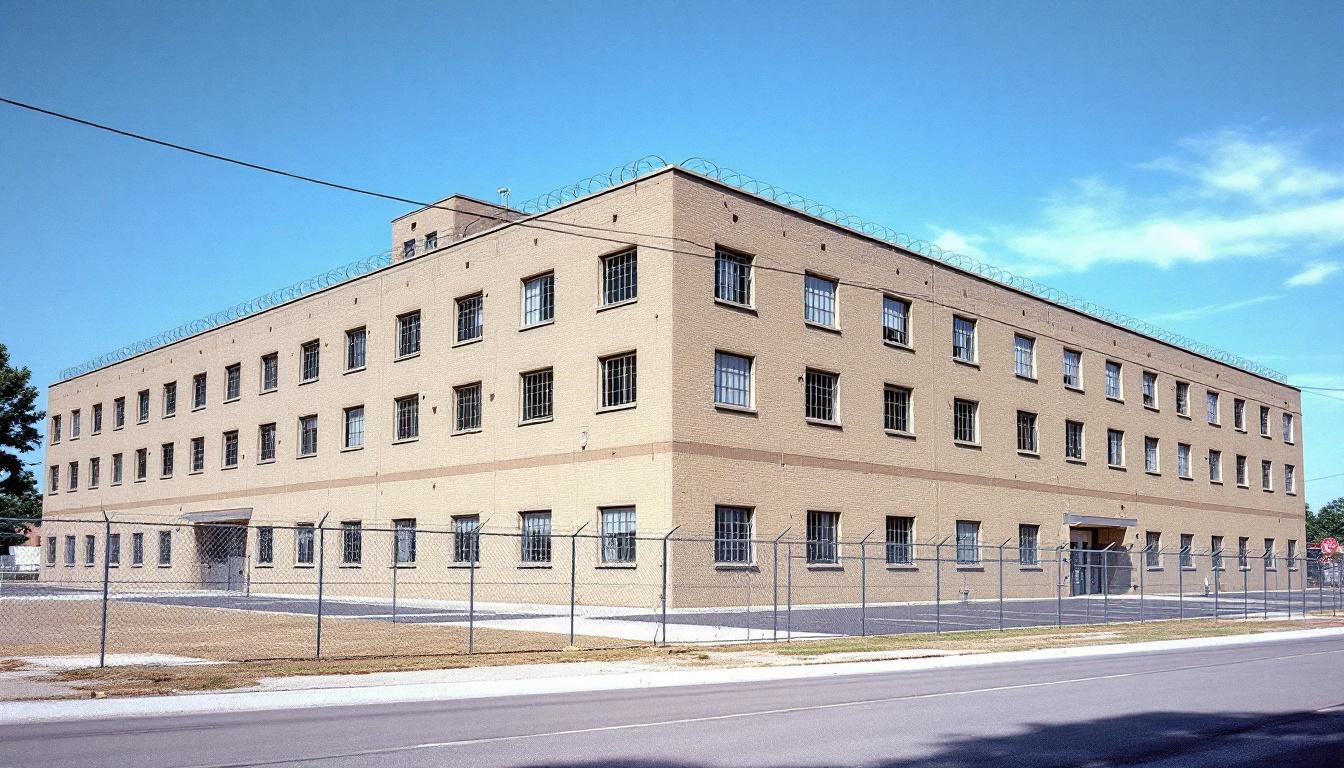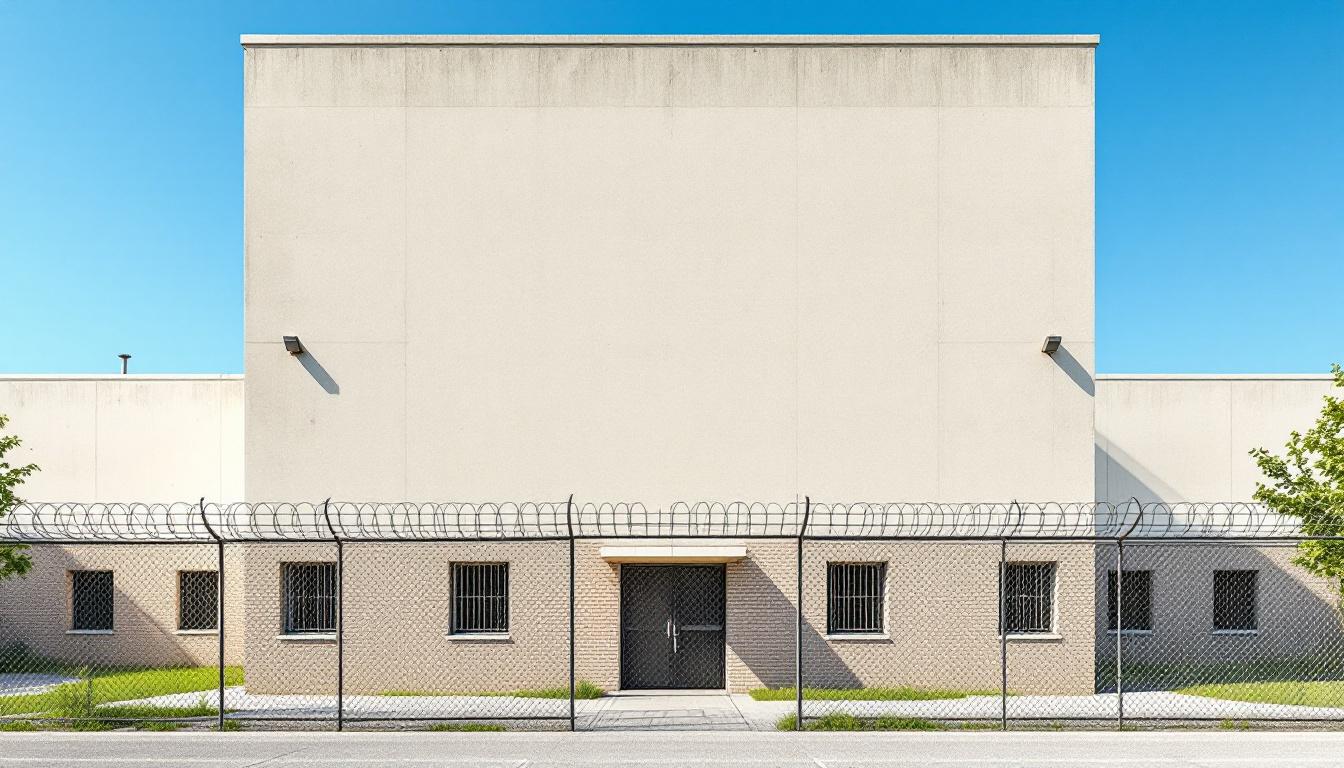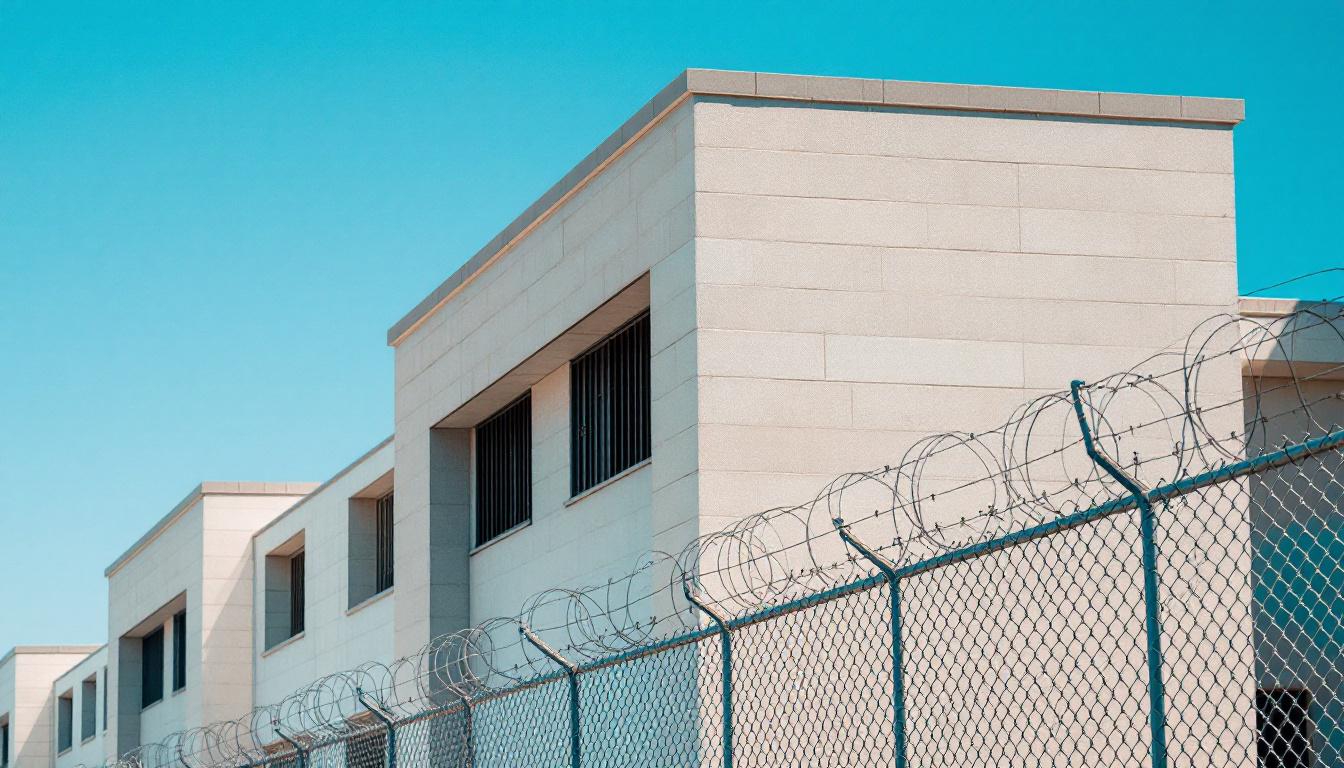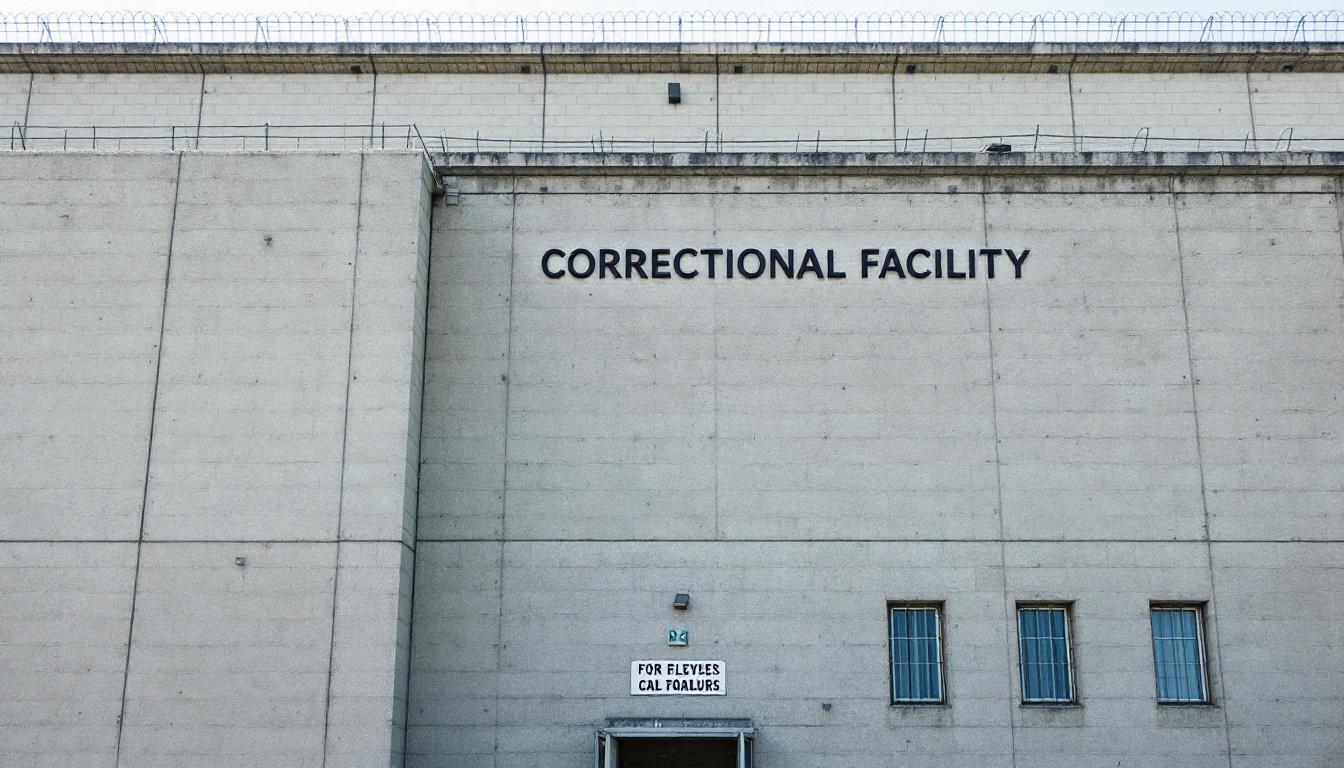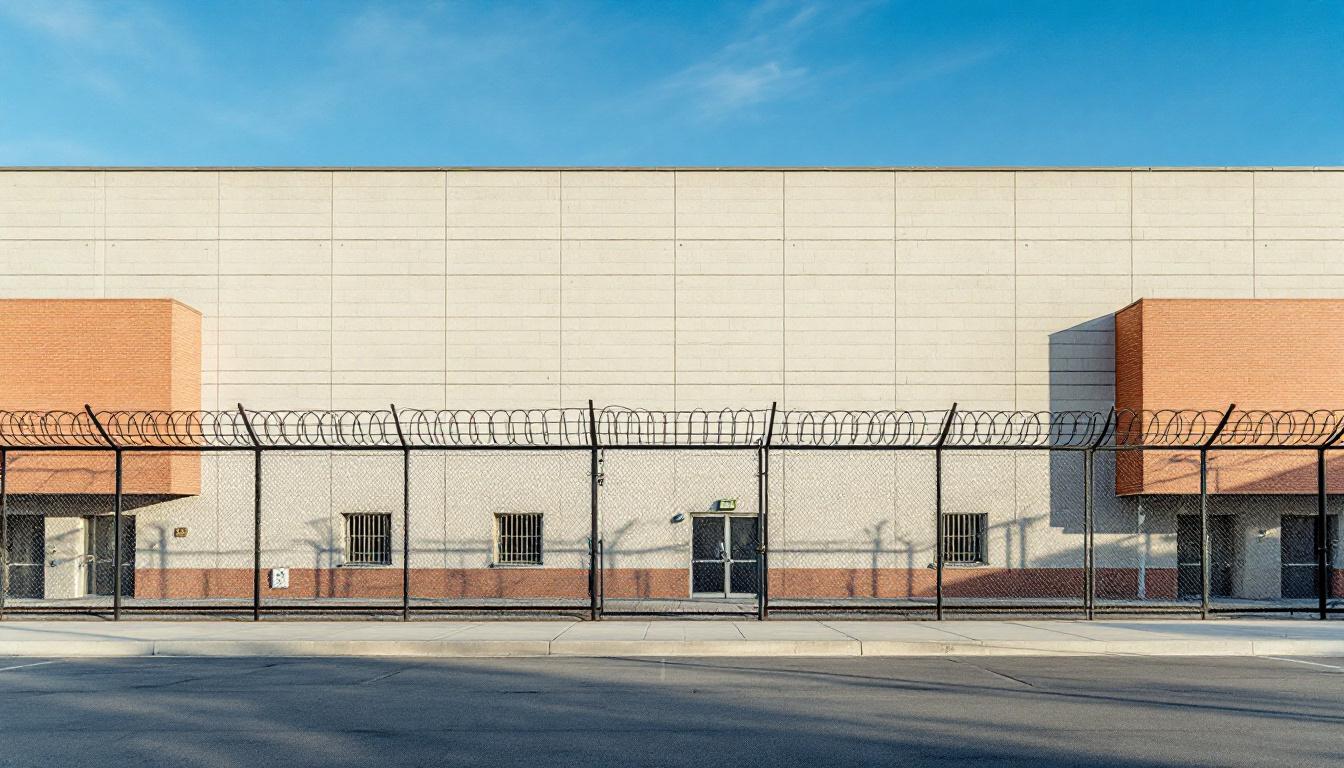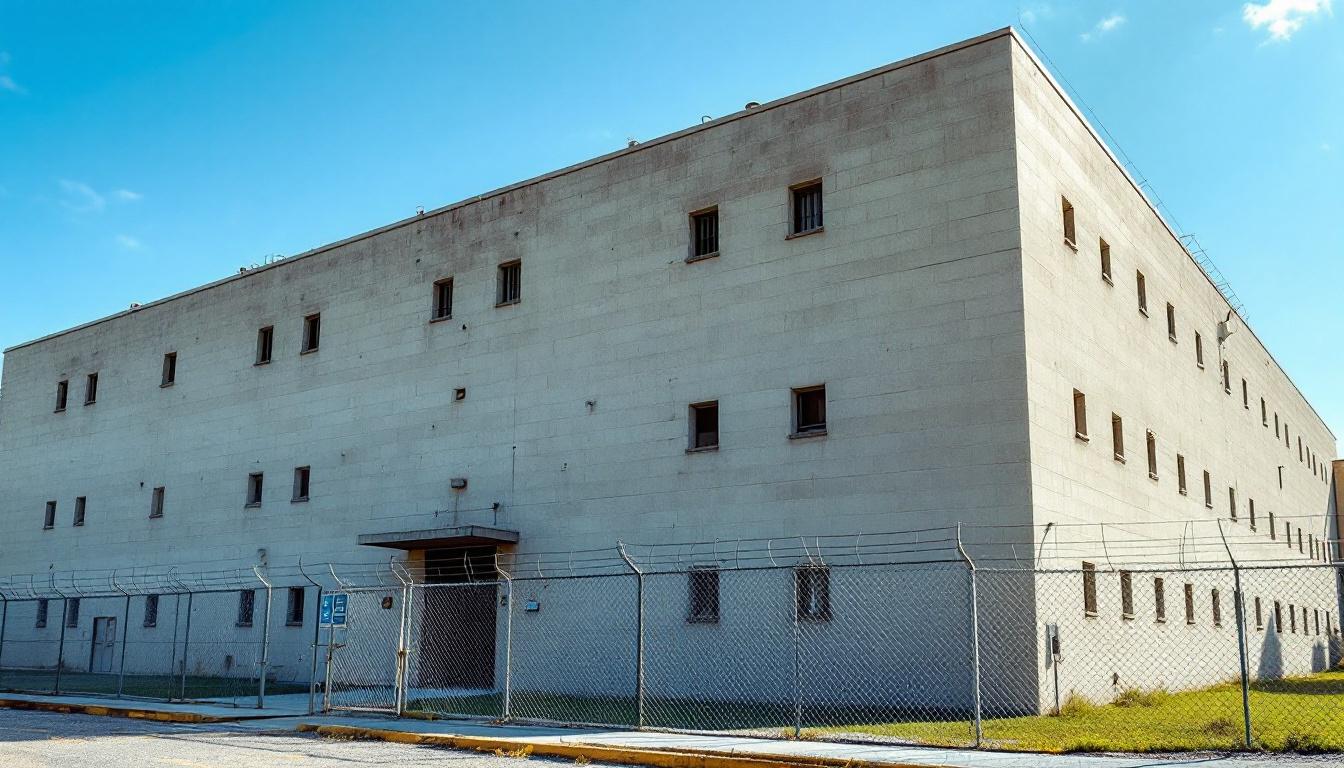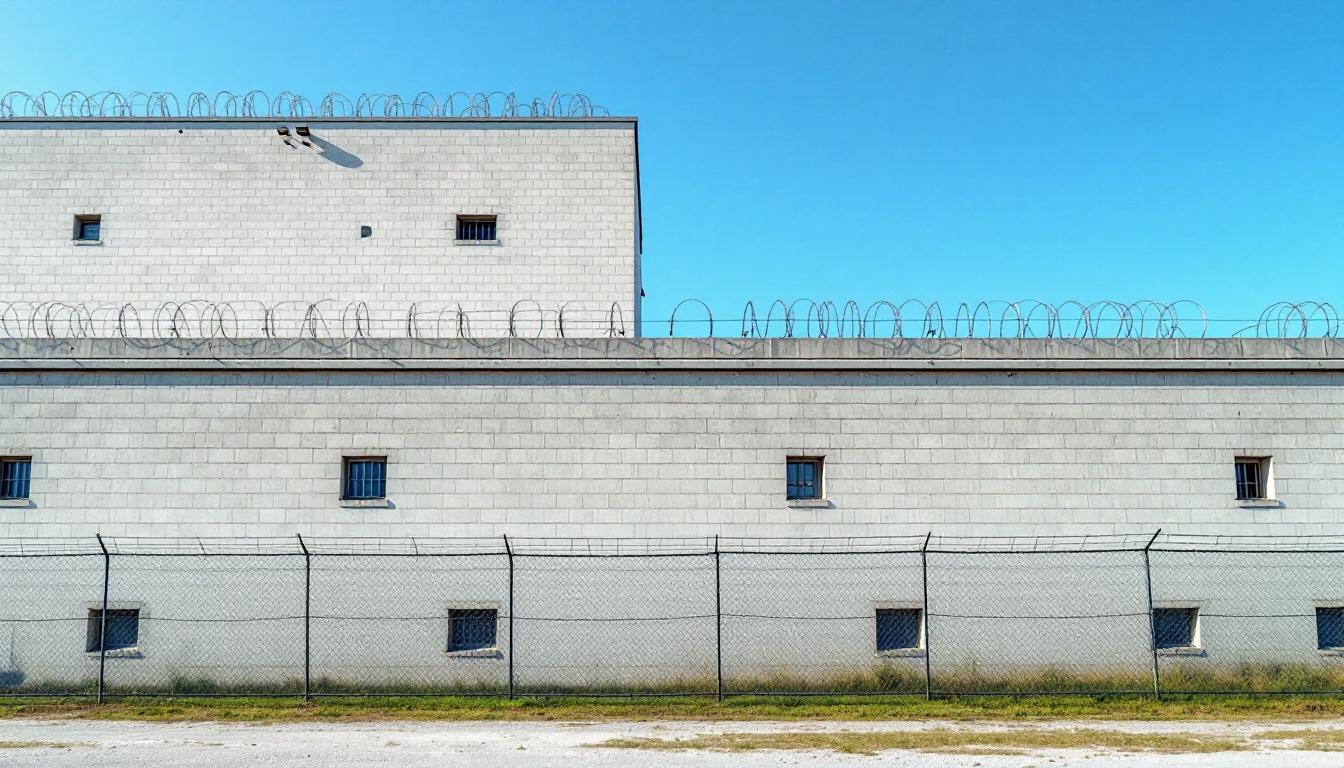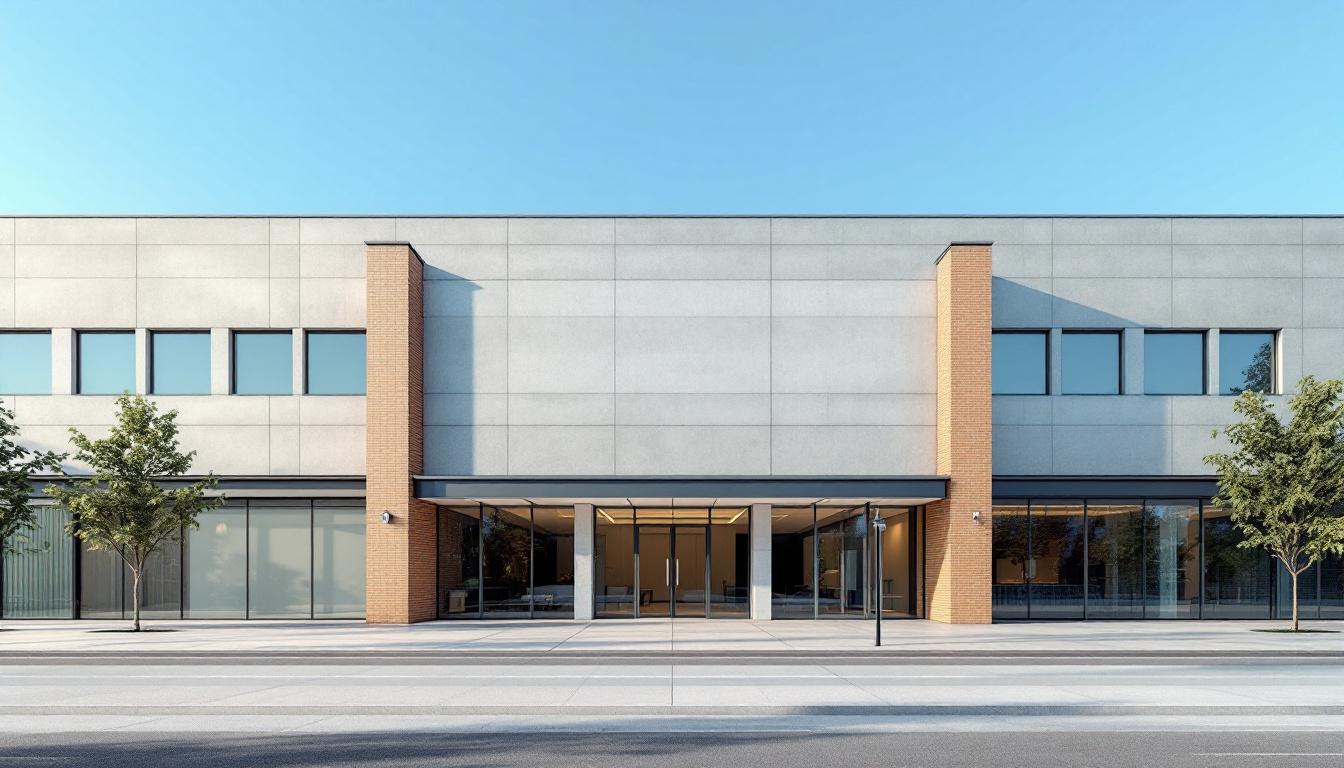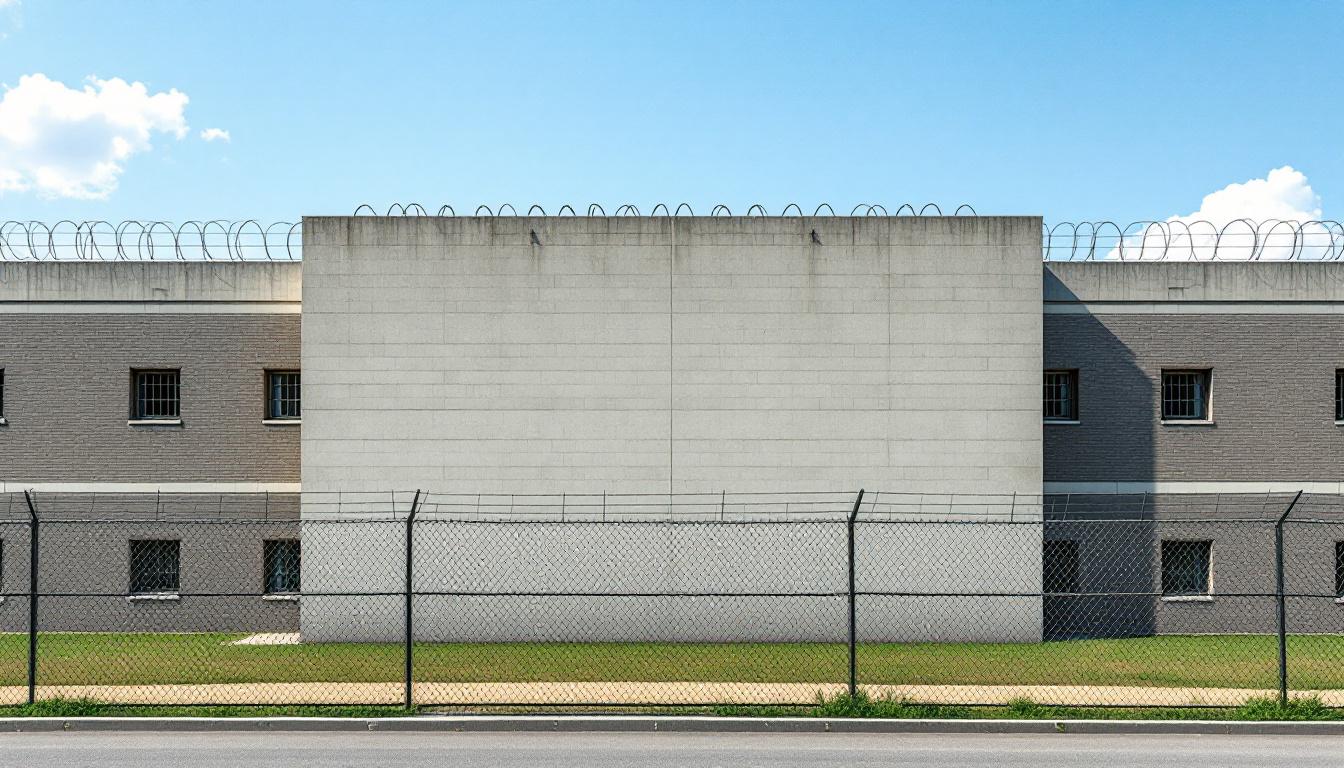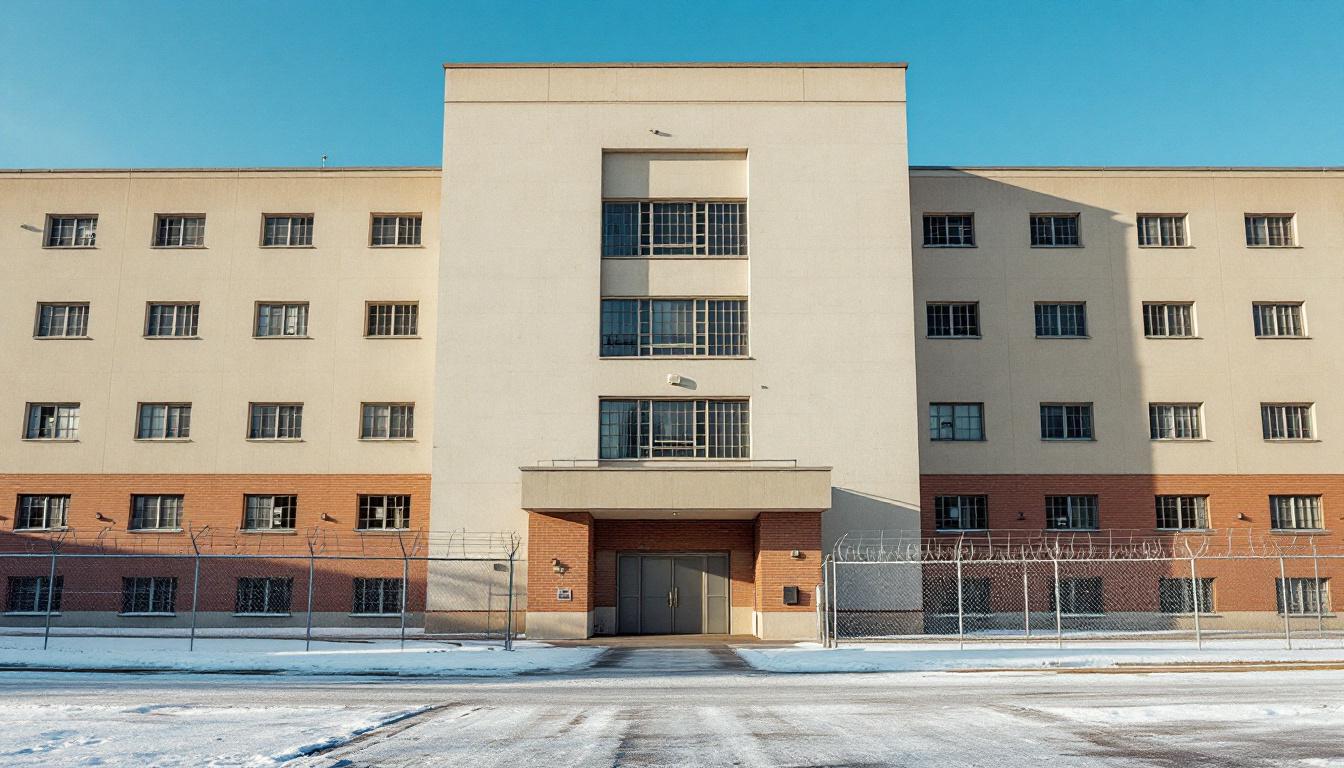
Quick Navigation
How to contact an inmate at Barton County Jail
This comprehensive guide will walk you through how to connect with an inmate at Barton County Jail. Follow the steps below to find an inmate and send letters and photos:
- Search for the inmate using our search tool below
- Create your account or log in to Penmate
- Write your message (up to 6,000 characters)
- Send instantly - inmates receive printed copies daily
Find an Inmate
Search for an inmate to start communicating today
Tip: You can search by first name, last name, or inmate ID number
To contact a person at Barton County Jail start by searching for the person on the official facility website. Perform a search by following these steps:
- Step 1: Enter their first name and last name into the search form and click "Search"
- Step 2: Locate their inmate record
- Step 3: Write down their Inmate ID and any housing information provided
Important! Be sure to enter the person's full name. Nicknames should not be used.
How to Send Messages to Inmates

You can use your phone or computer to send emails, letters, and photos to an inmate. Messages are sent electronically to inmate tablets or kiosks at the facility. If you would like to send a message, start by searching for an inmate at Barton County Jail.
Sending Photos and Postcards

A great way to send love and support to a loved one at Barton County Jail is to send photos and postcards. It only takes a few minutes to send photos from your phone and it makes a huge difference. You can also mail postcards with words of support and inspiration, or design your own postcard for special moments like birthdays and holidays.
Important! Be sure not to send any explicit photos or they may not be approved by the facility. You can also use a photo printing app like Penmate to make sure your photos are printed at the correct size (4x6 or 3x5) and are mailed according to the rules and regulations of Barton County Jail.
Frequently asked questions about Barton County Jail
-
How long does it take to deliver a message?
If you're sending an email message your letter is usually delivered within 24-48 hours. For messages sent via mail you should expect delivery within 3-7 days. All messages will need be approved by Barton County Jail.
-
How much does it cost to send a message to Barton County Jail?
You can send a message free using your phone or mail a message via USPS for the price of a $0.60 stamp and envelope. You can also purchase credits or e-stamps from services starting at $1.99.
-
What services can I use to contact an inmate at Barton County Jail?
Penmate
You can use Penmate to send letters and photos to an inmate from your phone. It's an easy way to stay in touch during your loved one's incarceration. Use the inmate locator to find an inmate's location and contact information, then you can send messages within a few minutes.
Securus messaging
Securus may be another option for communicating with an inmate at Barton County Jail. You can create a friends and family account and purchase credits to send messages. All messages will be reviewed and must be approved by the facility.
JPay
Some county jails and state prisons may support sending messages with JPay. You must register an account with the system, find your loved one, and purchase stamps to send messages. For some locations you can also attach photos.
Smart Jail Mail
You may also check if Smart Jail Mail is available at Barton County Jail. Smart Jail Mail is operated by Smart Communications and has contracted with some state and county jails. After purchasing credits, your messages and photos are sent to the facility, printed out, and then handed out to your loved one.
-
What is the mailing address of Barton County Jail?
Mailing address:
Barton County Jail
1408 Kansas Ave
Great Bend, KS 67530
Phone: (620) 793-1876 -
What are the visiting hours at Barton County Jail?
Visiting hours at Barton County Jail vary by housing unit and security level. Generally, visits are scheduled on weekends and holidays, with some facilities offering weekday visits. Contact the facility directly at (620) 793-1876 or check their website for the current visiting schedule. Visits typically last 30-60 minutes and must be scheduled in advance.
-
What items are prohibited when sending mail to Barton County Jail?
Prohibited items typically include: cash, personal checks, stamps, stickers, glitter, glue, tape, staples, paperclips, polaroid photos, musical or blank greeting cards, hardcover books, magazines with staples, and any items containing metal or electronics. Only send letters on plain white paper with blue or black ink. Photos must be printed on regular photo paper (no Polaroids). Always check with Barton County Jail for their specific mail policies.
-
How do I send money to an inmate at Barton County Jail?
You can send money to an inmate at Barton County Jail through several methods: 1) Online using JPay, Access Corrections, or the facility's approved vendor, 2) Money orders mailed directly to the facility with the inmate's name and ID number, 3) Kiosks located in the facility lobby, or 4) Over the phone using a credit or debit card. Fees vary by method, typically ranging from $2.95 to $11.95 per transaction.
-
Can I schedule a video visit with an inmate at Barton County Jail?
Many facilities now offer video visitation as an alternative to in-person visits. At Barton County Jail, video visits may be available through services like Penmate, Securus Video Connect, GTL, or ICSolutions. Video visits typically cost $10-20 for 20-30 minutes and must be scheduled in advance. You'll need a computer or smartphone with a camera and reliable internet connection. Contact the facility for their specific video visitation policies and approved vendors.
-
What identification do I need to visit an inmate at Barton County Jail?
All visitors must present valid government-issued photo identification such as a driver's license, state ID, passport, or military ID. Minors must be accompanied by a parent or legal guardian who can provide the minor's birth certificate. Some facilities require visitors to be on the inmate's approved visitation list, which may require a background check. Contact Barton County Jail for specific ID requirements and visitor approval procedures.
-
How can I find out an inmate's release date?
To find an inmate's release date at Barton County Jail, you can: 1) Use the online inmate search tool if available, 2) Call the facility's records department, 3) Contact the inmate's case manager or counselor, or 4) Have the inmate provide this information during a call or visit. For privacy reasons, some facilities only release this information to immediate family members.
Facility Overview
Official Website
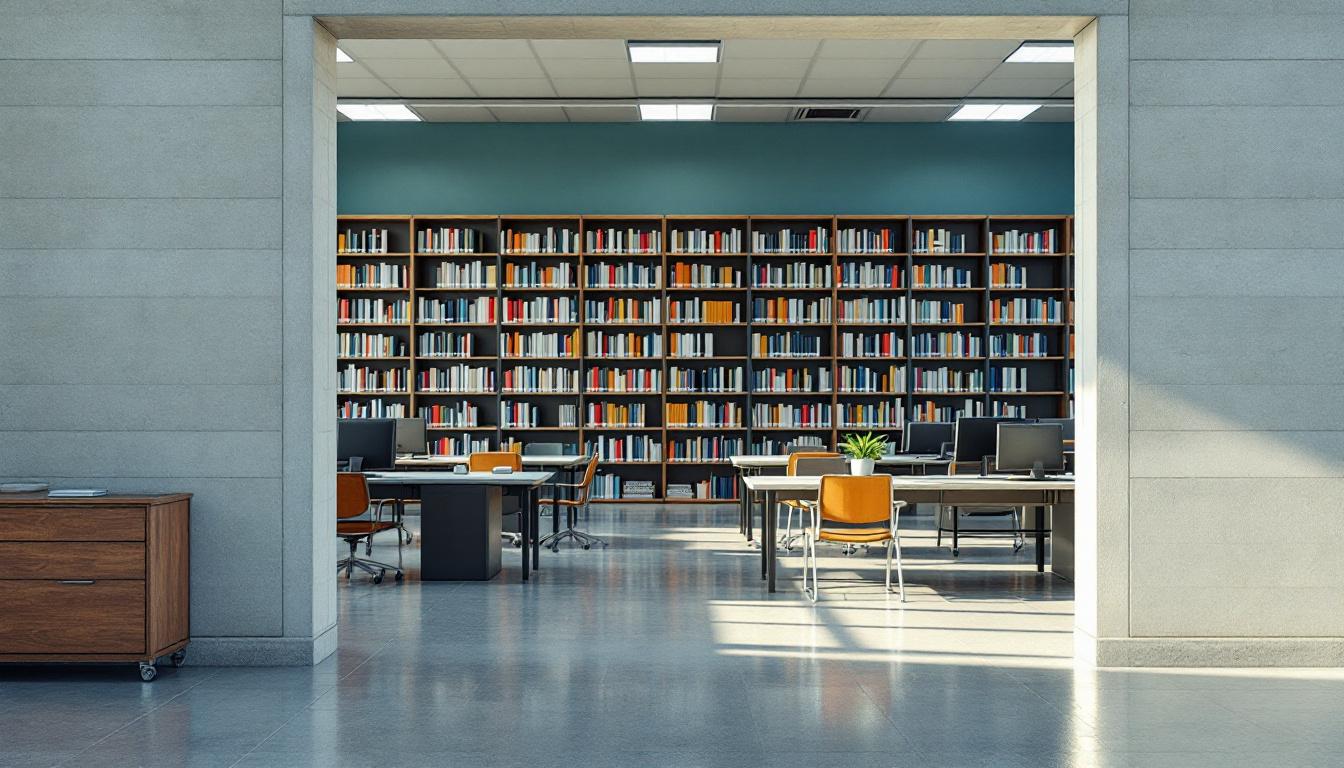
About Barton County Jail
Serving the communities of central Kansas with unwavering commitment, the Barton County Jail in Great Bend operates as a cornerstone of the region’s public safety infrastructure. This county-level correctional facility maintains its role within Kansas’s broader correctional system by focusing on secure custody while emphasizing accessible pathways for family communication and inmate support services. The facility’s operational philosophy centers on balancing community protection with opportunities for personal development, recognizing that effective corrections work extends beyond simple containment to include meaningful preparation for eventual community reintegration.
Located in Great Bend, the facility typically provides essential services that support both inmates and their families throughout the incarceration process. These services may include educational programming, substance abuse counseling, and work opportunities that help maintain productive daily routines. The jail generally offers visiting programs designed to preserve family connections, alongside communication systems that enable regular contact between inmates and their support networks. As part of Kansas’s county jail system, the facility often coordinates with state agencies, local courts, and community organizations to ensure comprehensive case management and appropriate resource allocation for individuals in custody.
The institution’s approach to corrections reflects broader Midwest values of practical rehabilitation combined with accountability. Staff members typically work to maintain a structured environment that encourages personal responsibility while providing access to programs that may include life skills training, mental health services, and pre-release planning. Through these efforts, the Barton County Jail serves not dedicated as a secure detention facility but also as a component of the community’s broader public safety network, working to support positive outcomes for both inmates and the Great Bend area residents they will eventually rejoin.
Programs & Services
Personal transformation through structured learning opportunities forms the cornerstone of rehabilitative services at Barton County Jail in Kansas. The facility’s comprehensive approach to inmate development recognizes that meaningful change occurs when individuals are provided with diverse pathways for growth, skill acquisition, and self-improvement. Through carefully designed services that address educational deficits, vocational preparation, and personal wellness, the facility creates an environment where inmates may engage in purposeful activities that extend far beyond their period of incarceration.
Educational services typically encompass basic literacy instruction, GED preparation, and continuing education opportunities that allow inmates to address academic gaps while developing critical thinking skills. Furthermore, vocational training services may provide hands-on instruction in practical trades and marketable skills, enabling participants to build competencies that enhance their employment prospects upon release. These structured learning experiences often emphasize both technical proficiency and workplace readiness, incorporating elements of professional communication and industry-standard practices that prepare inmates for successful reintegration into the workforce.
The facility’s support services framework includes intramural sports activities that promote physical fitness and teamwork, while library services offer access to educational materials, recreational reading, and research resources that support ongoing learning initiatives. Arts and crafts programming may provide creative outlets that foster self-expression and develop fine motor skills, contributing to overall personal development. Additionally, substance abuse treatment services typically address underlying addiction issues through evidence-based therapeutic approaches, helping inmates develop coping strategies and relapse prevention techniques essential for long-term recovery and successful community reintegration.
Daily Life & Visitation
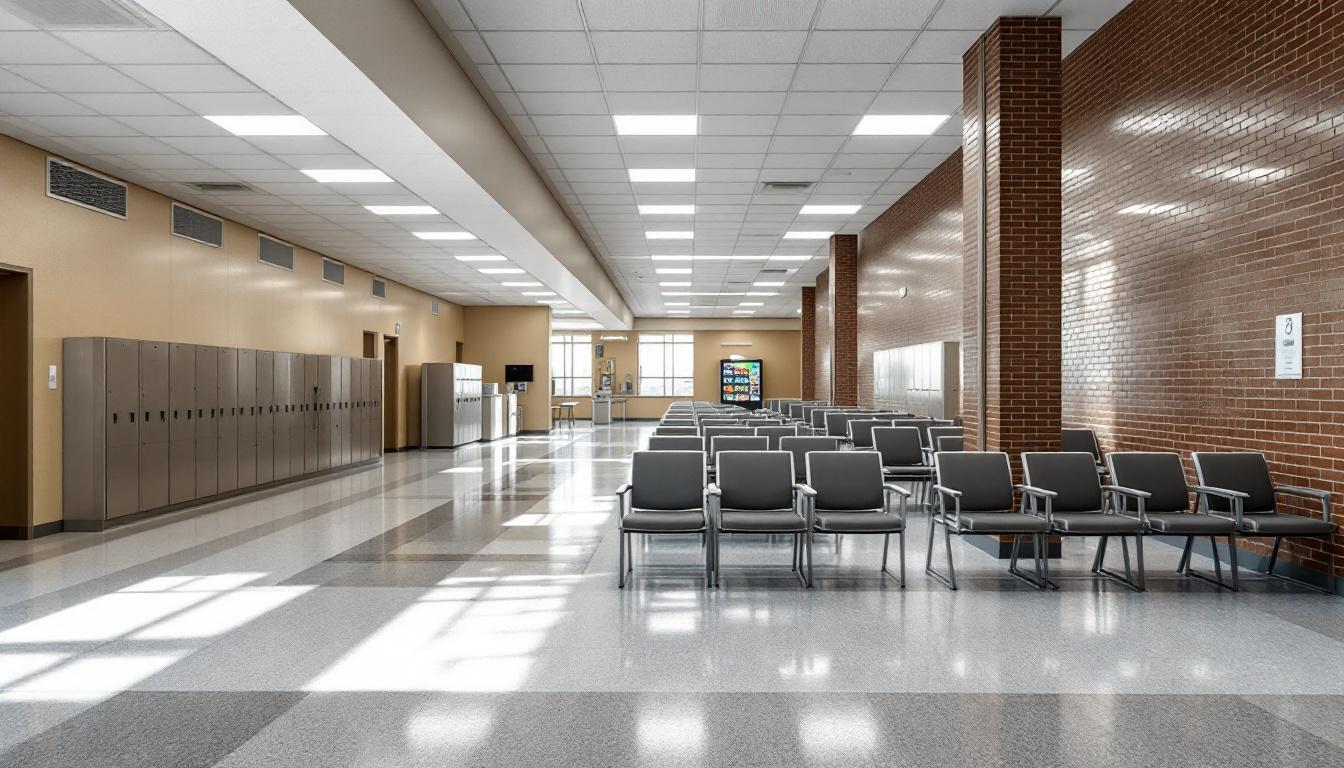
The concrete walls and fluorescent lighting of the housing units at Barton County Jail create an institutional atmosphere where inmates must navigate their daily existence within clearly defined boundaries. Today’s routine typically begins with early morning counts, followed by meal service that brings inmates together in common areas where they adapt to the structured pace that governs every aspect of their day. Consistently throughout the week, inmates find themselves adjusting to the rhythmic schedule of activities, meals, and security procedures that provide the framework for institutional life.
Furthermore, the living accommodations generally consist of shared cells or dormitory-style housing units where inmates learn to coexist in close quarters, often developing informal systems for maintaining personal space and resolving conflicts. The facility typically provides basic bedding, personal hygiene items, and limited storage for approved personal property, while inmates may supplement these essentials through commissary purchases when funds are available. Although the environment can feel restrictive, many inmates gradually establish routines around reading, letter writing, or quiet conversation that help them maintain connections to their identity and relationships outside the facility walls.
The structured programming schedules often include work assignments such as kitchen duties, cleaning responsibilities, or facility maintenance tasks that provide inmates with purposeful activity and sometimes modest compensation. Recreation opportunities may offer brief respites from the confined atmosphere, with inmates typically having access to television viewing areas, limited outdoor time, or basic exercise equipment depending on security classifications and facility resources. Family connections remain vital lifelines through scheduled visitation periods and telephone privileges, allowing inmates to maintain relationships that often prove essential for successful adaptation to both institutional life and eventual reintegration into the community.
Ready to Connect?
Start communicating with your loved one today
Search for an Inmate
